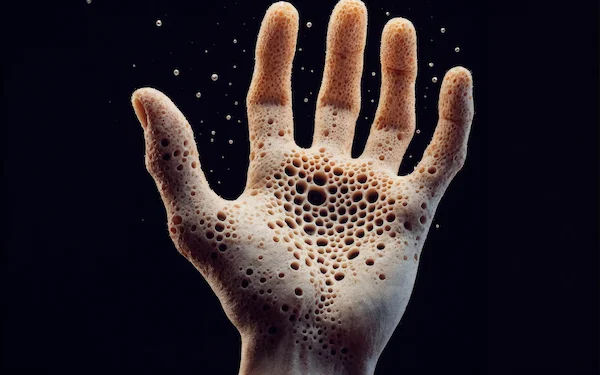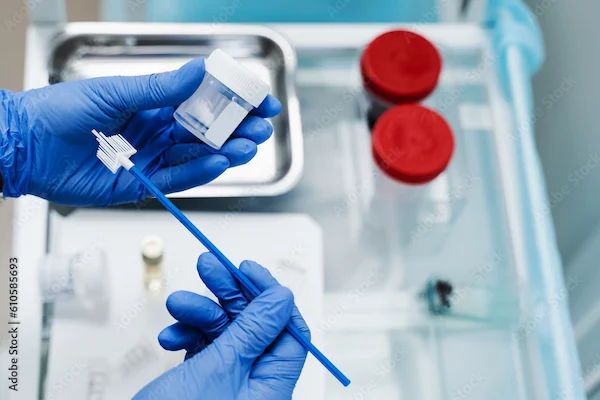Hemiplegia: Symptoms, Causes, and Treatment
Know about the hemiplegia causes, symptoms, diagnosis, treatment, and prevention learn about the lifestyle tips and home care for hemiplegia and more.

Written by Dr. Md Yusuf Shareef
Reviewed by Dr. D Bhanu Prakash MBBS, AFIH, Advanced certificate in critical care medicine, Fellowship in critical care medicine
Last updated on 22nd Aug, 2025

Introduction
Hemiplegia is a condition that affects one side of the body, causing weakness or paralysis in the arm, leg, and sometimes the face. It can be a challenging condition, but with the right care and treatment, many people can regain strength and improve their quality of life.
In this article, we’ll explore what hemiplegia is, its symptoms, causes, and available treatment options. We’ll also share some helpful tips for managing the condition and improving daily life.
What is Hemiplegia?
Hemiplegia refers to paralysis or weakness on one side of the body (left or right). It occurs when the brain’s signals to the muscles on that side are disrupted due to damage in the brain or spinal cord.
This condition can affect people of all ages, including children (congenital hemiplegia) and adults (acquired hemiplegia). Depending on the severity, some individuals may experience mild weakness, while others may have complete loss of movement.
Consult a Neurology Doctor for Personalised Advice
Common Symptoms of Hemiplegia
The symptoms of hemiplegia vary depending on the underlying cause and the extent of brain damage. Some common signs include:
- Muscle weakness or paralysis on one side of the body (arm, leg, or face).
- Difficulty walking or balancing due to leg weakness.
- Stiffness or muscle spasms (spasticity).
- Loss of coordination (ataxia).
- Trouble with fine motor skills, such as holding objects or writing.
- Speech difficulties (if the face is affected).
- Numbness or tingling in the affected side.
In some cases, people with hemiplegia may also experience memory problems, difficulty concentrating, or mood changes due to brain injury.
What Causes Hemiplegia?
Hemiplegia occurs when there is damage to the brain or spinal cord, disrupting nerve signals to one side of the body. The most common causes include:
1. Stroke
A stroke is the leading cause of hemiplegia. It happens when blood flow to a part of the brain is blocked (ischemic stroke) or when a blood vessel bursts (hemorrhagic stroke). This damages brain cells, leading to paralysis on the opposite side of the body.
2. Traumatic Brain Injury (TBI)
Head injuries from accidents, falls, or sports injuries can damage brain tissue, leading to hemiplegia.
3. Cerebral Palsy (in children)
Some children are born with hemiplegia due to brain damage before or during birth (congenital hemiplegia).
4. Brain Tumours or Infections
Tumours pressing on brain tissue or infections like meningitis can also cause hemiplegia.
5. Multiple Sclerosis (MS) or Other Neurological Conditions
Diseases that affect the nervous system, such as MS, can lead to muscle weakness or paralysis.
How is Hemiplegia Diagnosed?
If you or a loved one experiences sudden weakness on one side of the body, seek medical help immediately. Doctors may perform:
- Physical examination to check muscle strength and reflexes.
- Brain imaging tests (MRI or CT scan) to detect brain damage.
- Blood tests to rule out infections or other conditions.
- Electromyography (EMG) to assess nerve and muscle function.
Early diagnosis is crucial for effective treatment and recovery.
Treatment Options for Hemiplegia
Treatment focuses on improving mobility, strength, and independence. The approach depends on the cause and severity of the condition.
1. Physical Therapy (PT)
A physical therapist helps patients regain movement through exercises, stretching, and balance training.
2. Occupational Therapy (OT)
OT helps patients relearn daily activities like dressing, eating, and writing using adaptive techniques.
3. Medications
- Muscle relaxants (for spasticity).
- Pain relievers (if there is discomfort).
- Blood thinners (if hemiplegia is due to a stroke).
4. Assistive Devices
Walking canes, braces, or wheelchairs may be recommended for support.
5. Surgery (in rare cases)
If hemiplegia is caused by a tumour or severe nerve compression, surgery may be needed.
6. Rehabilitation Programs
Long-term rehabilitation helps patients regain independence and improve quality of life.
Lifestyle and Home Care Tips
Living with hemiplegia can be challenging, but these tips can help:
- Exercise regularly – Gentle stretching and strength exercises can improve mobility.
- Use assistive tools – Grab bars, non-slip mats, and adaptive utensils make daily tasks easier.
- Eat a balanced diet – A healthy diet supports recovery and overall well-being.
- Stay mentally active – Puzzles, reading, and memory exercises help cognitive function.
- Join support groups – Connecting with others facing similar challenges can provide emotional support.
When to See a Doctor?
Seek immediate medical attention if you notice:
- Sudden weakness on one side of the body.
- Difficulty speaking or understanding speech.
- Severe headache with dizziness.
If you or a loved one is experiencing symptoms of hemiplegia, consult a neurologist for proper evaluation and treatment.
Final Thoughts
Hemiplegia can be life-changing, but with the right care, many people regain function and lead fulfilling lives. If you or someone you know is affected, don’t hesitate to seek medical help and explore rehabilitation options.
Consult a Neurology Doctor for Personalised Advice
Consult a Neurology Doctor for Personalised Advice

Dr. Avinash Gupta
Neurologist
12 Years • MBBS, DNB - Neurology
Bilaspur
Apollo Hospitals Seepat Road, Bilaspur
(125+ Patients)

Dr. Prabash P R
Neurologist
16 Years • MBBS, MD, DM
Chennai
Apollo Speciality Hospitals Vanagaram, Chennai
(75+ Patients)

Dr. Andugulapati Santosh Sriram
Neurologist
6 Years • MBBS, MD, DM (NEUROLOGY)
Hyderguda
Apollo Hospitals Hyderguda, Hyderguda
Dr Justin Thomas
Neurologist
10 Years • MD DM NEUROLOGY
Bhopal
Apollo Sage Hospitals, Bhopal

Dr. Gangula Charvitha Reddy
Neurologist
6 Years • MBBS, MD DM NEUROLOGY, SCE NEUROLOGY ( RCP-UK).
Hyderabad
Apollo Hospitals D R D O kanchanbagh, Hyderabad
Consult a Neurology Doctor for Personalised Advice

Dr. Avinash Gupta
Neurologist
12 Years • MBBS, DNB - Neurology
Bilaspur
Apollo Hospitals Seepat Road, Bilaspur
(125+ Patients)

Dr. Prabash P R
Neurologist
16 Years • MBBS, MD, DM
Chennai
Apollo Speciality Hospitals Vanagaram, Chennai
(75+ Patients)

Dr. Andugulapati Santosh Sriram
Neurologist
6 Years • MBBS, MD, DM (NEUROLOGY)
Hyderguda
Apollo Hospitals Hyderguda, Hyderguda
Dr Justin Thomas
Neurologist
10 Years • MD DM NEUROLOGY
Bhopal
Apollo Sage Hospitals, Bhopal

Dr. Gangula Charvitha Reddy
Neurologist
6 Years • MBBS, MD DM NEUROLOGY, SCE NEUROLOGY ( RCP-UK).
Hyderabad
Apollo Hospitals D R D O kanchanbagh, Hyderabad




